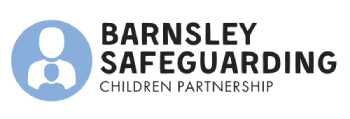Safeguarding
Introduction and welcome
Welcome to Barnsley Safeguarding Children Partnership’s yearly report which covers our work in 2023/24. It provides an overview of this year’s multiagency safeguarding activity and reflects the hard work and commitment of all our partner agencies. Our aim is to create strong relationships and a positive multiagency environment in our shared and equal duty to safeguard and promote the welfare of Barnsley’s children and young people, building a brighter future for every child. Our Healthy Barnsley 2030 ambition is that everyone has the right support, with early help at the right time and place; that fewer people live in poverty and that everyone has the resources they need to look after themselves and their families; that our diverse places are welcoming, supportive and adaptable.
The national context has been an evolving landscape where the cost-of-living crisis means greater numbers of adults find themselves parenting in hardship and there are continuing challenges to Public Services funding. The legacy of the pandemic is still felt, especially in schools and mental health service provision. Recruitment challenges continue in Health, Education, Police and Children’s Services.
This year has seen changes to the Partnership board. Jane Sivakumar has moved on from her Integrated Care Board delegated statutory/executive partner role, which has been taken up by Alun Windle. David Radford, our Independent Chair and Scrutineer departed in March 2024. We are preparing new scrutiny arrangements later this year, in line with the changes in Working Together 2023.
Whilst last year was a period of significant change in the Partnership, this yearly report reflects the growth and development arising from those changes, to deliver more effective services to Barnsley children and their families. The Children’s Services Development Board stood down in April 2024, after signing-off its ambitious improvement programme. The governance of the Development Board and Safeguarding Children Partnership has been coordinated to avoid duplication and ensure joint working across shared areas. Last year’s JTAI workplan was signed-off in November 2023. The development of a multiagency team at the Integrated Front Door and the launch of the combined Children’s and Police Bsafe team, to meet the risks that children experience outside of the home, have brought positive impact to the lives of Barnsley’s children and young people. The HMIP inspection of the Youth Justice Service was published in July 2023 and was judged to be ‘Good’, which is a credit to the new team The Ofsted local authority Inspection in September 2023 judged the service as ‘good’, which is a notable achievement given pressures in public funding and has been a major focus this year. The progress of the four ensuing recommendations show that whilst we have areas for improvement, we are becoming more effective in providing help and protection to children and their families.
The national introduction of Integrated Care Boards in September 2022 has continued to drive significant organisational change. The ICB has been restructured and is now in a process of co-design to develop new ways of working. New models of working are being developed across the ICB (including safeguarding). The new model will retain a strong presence at Place and commitment to Partnership working and will work more effectively and robustly at a system level. During these changes, Health agencies have and will continue to maintain their commitment to both regional and local partnership working to safeguard children.
Our third statutory Safeguarding Partner, South Yorkshire Police are preparing for an HM Inspectorate of Constabulary (HMIC) in autumn 2024. The Yorkshire and Humber Probation Service are preparing for inspection in summer 24.
The Government reforms for Children’s Social Care, including Working Together 23, were published in December 2023 and the Partnership is working together to plan and implement its significant raft of changes that will be captured in our multiagency safeguarding arrangements in December 2024.
Our yearly report recognises the progress that has been made in working together to keep children safe from harm, the challenges that have been met and the work ahead of us. We are grateful to all of our partners and their dedicated front-line staff for their support and steadfast commitment to safeguarding children in Barnsley.
Carly Speechley - Executive Director for Children's Services, Barnsley Council
Alun Windle - Chief Nurse (Barnsley), NHS South Yorkshire Integrated Care Board
Simon Wanless Chief Superintendent - Barnsley District Commander, South Yorkshire Police
Annual reports
These documents define and guide the work of the Safeguarding Children Partnership throughout the year.

